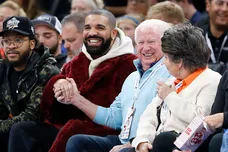Earlier this year, Q-Tip, founding member of A Tribe Called Quest and universal Hip-hop icon, was named as the very first artistic director of Hip-Hop culture at the Kennedy Center for the Performing Arts in D.C.
In a recent sit-down with Michel Martin of NPR, the Abstract opened up about his new role on the heels of announcing of a summer run in which A Tribe Called Quest performed its finals live performances out of respect and in tribute of the late, and equally influential member Phife Dawg, who passed away last year.
“I think it's a great opportunity for this country in a lot of different ways,” Q-Tip expounded on the significance of his role. “A historic institution for arts such as the Kennedy Center that they would want to, in so many words, institutionalize hip-hop because for so long the creators and the practitioners of the form were looked at as degenerates, uneducated hoodlums, you know saying provocateurs, cop killers, rapers [SIC], like all these different labels.”
“So, through all the black and blues, to able to have the Kennedy Center wrap up hip-hop and claim it, like jazz before it and blues before it and so forth as a part of like a true American art form to kind of investigate, not only the rich foundation of hip-hop and its beginnings, but it helps people who may not be from this world to understand truly the complexity, what black complexity is.”
The last full-length effort from ATCQ came in November of last year in the form of We Got It From Here…Thank You 4 Your Service, which went on to top the Billboard Hot 200 chart at No. 1 and move over 500,000 units to earn Gold certification.
This move for Tip signals a new era in which the group will presumably move on from the realm of Hip-Hop as a unit.
“It would be great to see the Mormon family from Utah running into a family from Harlem, African-American family,” Tip added. “And they both are looking at something or sharing something about hip-hop whether it be like a Tupac display or a Grandmaster Flash DJ mix, and they see that they have something in common. The church of the arts, it's a great idea.”
Listen to the interview in full below.
Q-TIP








